On this page, you can expect to find a comprehensive psychology vocabulary list along with games, flashcards, and other resources to help you study and learn the key terms in this subject. Explore the links provided to enhance your understanding of important concepts in psychology.
Psychology is the scientific study of the mind and behavior, encompassing a wide range of topics such as cognition, emotion, perception, personality, and mental disorders. Psychologists use various methods to understand and explain how individuals think, feel, and act in different situations. By applying psychological principles, people can gain insight into their own behavior and improve their mental well-being. Whether studying the brain’s neural processes or exploring the impact of childhood experiences on adult behavior, psychology plays a crucial role in understanding human nature and promoting mental health.
Practice & Reinforce Your Learning
Psychology Vocabulary List
Clinical Psychology
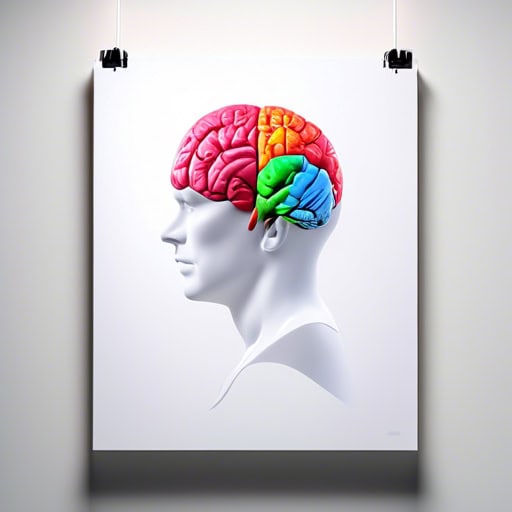
- Studying abnormal psychology can help us better understand mental illnesses such as schizophrenia and bipolar disorder.
- Therapists specializing in abnormal psychology work with clients to address and manage symptoms of psychological disorders.
- Research in abnormal psychology aims to improve diagnostic criteria and treatment options for individuals with mental health challenges.

- During the initial assessment, the psychologist will gather information about the client's history and current symptoms.
- The assessment revealed that the patient was experiencing symptoms of anxiety and depression.
- The therapist used a variety of assessment tools to accurately diagnose the client's psychological condition.

- The doctor provided a diagnosis of generalized anxiety disorder after conducting a thorough evaluation.
- Receiving a diagnosis of depression can be overwhelming, but it is the first step towards getting the help and treatment needed.
- The accuracy of a diagnosis in clinical psychology relies on a comprehensive assessment of the individual's symptoms and behaviors.

- The patient is currently undergoing cognitive behavioral therapy as part of their treatment plan for anxiety.
- The effectiveness of a treatment for depression may vary depending on the individual's unique circumstances and needs.
- It is important for clinicians to regularly assess and adjust treatment strategies to ensure the best outcomes for their clients.

- Her mental health deteriorated after the traumatic incident.
- It's important to prioritize mental health and seek support when needed.
- Regular exercise and mindfulness practices can improve overall mental health.

- I have been attending counseling sessions to address my anxiety and depression.
- My therapist recommended group counseling to help me improve my social skills.
- Counseling has been instrumental in helping me navigate through my grief after the loss of a loved one.

- My therapist suggested we try behavior therapy to help me overcome my fear of public speaking.
- Behavior therapy has been shown to be effective in treating various mental health disorders such as anxiety and depression.
- I have been practicing the techniques I learned in behavior therapy to help me stop biting my nails.

- After experiencing a traumatic event, Sarah sought psychotherapy to work through her feelings of anxiety and PTSD.
- The psychotherapy sessions helped John understand the root causes of his depression and develop coping strategies to manage his symptoms.
- Many people find that psychotherapy is a helpful tool in improving their mental health and overall well-being.
Cognitive Psychology

- She excels in problem-solving by breaking down complex issues into smaller, more manageable components.
- Effective problem-solving skills are crucial in cognitive psychology to analyze and solve intricate mental challenges.
- Through practice and perseverance, individuals can improve their problem-solving abilities and enhance their cognitive functioning.

- She struggled with her decision-making process when choosing between two job offers.
- The company implemented a new system to improve their employees' decision-making abilities.
- Cognitive psychologists study the factors that influence an individual's decision-making skills.
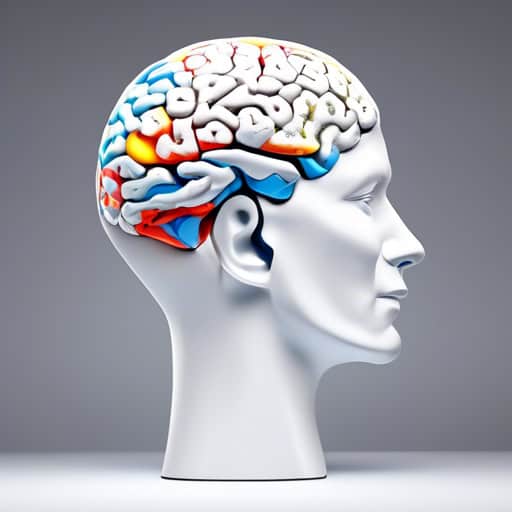
- I was deep in thought, thinking about the best way to approach the project.
- She spent hours thinking about how to resolve the issue at hand.
- His critical thinking skills helped him come up with a creative solution to the problem.

- Her perception of the situation was influenced by her past experiences and personal biases.
- The artist's use of color and texture created a unique perception of depth in the painting.
- Cultural differences can lead to varying perceptions of social norms and etiquette.
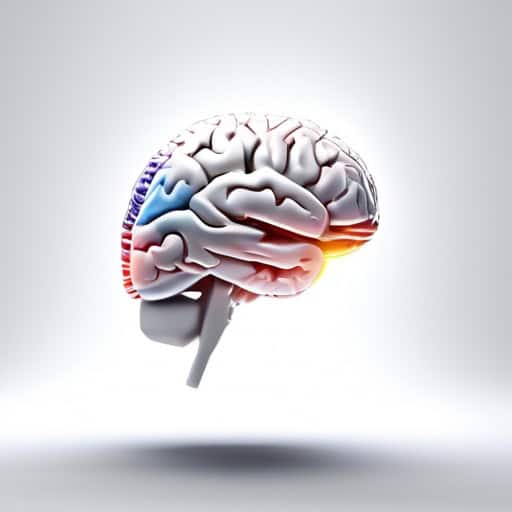
- My memory of that event is quite vivid, as if it happened yesterday.
- She has a remarkable memory for faces, always recognizing people she has met before.
- The smell of fresh flowers always triggers a memory of my childhood garden.

- Attention to detail is crucial when working on this project.
- The teacher asked the students to pay attention to the instructions.
- The speaker captivated the audience's attention with her powerful words.
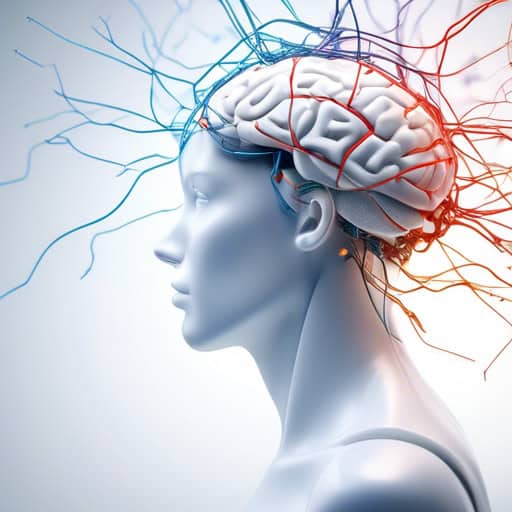
- His impaired cognition made it difficult for him to remember simple instructions.
- Studying the effects of aging on cognition, the researchers found a decline in memory and problem-solving abilities.
- The therapist used cognitive behavioral therapy to help improve the patient's cognition and emotional well-being.
Developmental Psychology

- Children progress through the Piagetian stages of cognitive development at different rates.
- A child in the preoperational stage may struggle with conservation tasks.
- During the concrete operational stage, children begin to understand concepts such as reversibility and conservation.

- He struggled with forming healthy attachments due to a history of neglect and abuse.
- The therapist emphasized the importance of secure attachment in early childhood for long-term mental well-being.
- She felt a deep sense of attachment to her grandmother, who had been her rock growing up.

- During Erikson's stages of development, individuals navigate various psychosocial conflicts that shape their identity and relationships with others.
- According to Erikson's stages, successful resolution of each stage leads to healthy development and a sense of fulfillment.
- Adolescents often struggle with the identity versus role confusion stage in Erikson's stages, as they explore who they are and their place in the world.

- The teacher used scaffolding techniques to help the students understand the complex math problem.
- Parents can provide scaffolding by breaking down tasks into smaller steps to support their child's learning.
- The therapist used scaffolding to assist the child in developing fine motor skills during the therapy session.

- The concept of object permanence is crucial for infants to develop a sense of the world around them.
- Without object permanence, babies would become easily confused by disappearing objects.
- As children grow older, their understanding of object permanence becomes more sophisticated.

- Socialization is a crucial aspect of human development as it helps individuals adapt and function within their society.
- Children go through socialization as they learn to interact with others, follow rules, and understand social expectations.
- Socialization can take place in various settings such as family, school, peer groups, and the media.

- Her cognitive development was evident as she started to recognize shapes and colors at a young age.
- The preschool curriculum was designed to promote cognitive development through interactive activities and games.
- Parents play a crucial role in supporting their child's cognitive development by providing opportunities for learning and exploration.
Social Psychology

- Her decision to join the protest was heavily influenced by her social circle's strong beliefs in social justice issues.
- The rise of social media has greatly increased the speed and reach of social influence, with trends and opinions quickly spreading across platforms.
- Studies have shown that individuals are more likely to conform to social norms and behaviors when they perceive a high level of social influence from their peers.
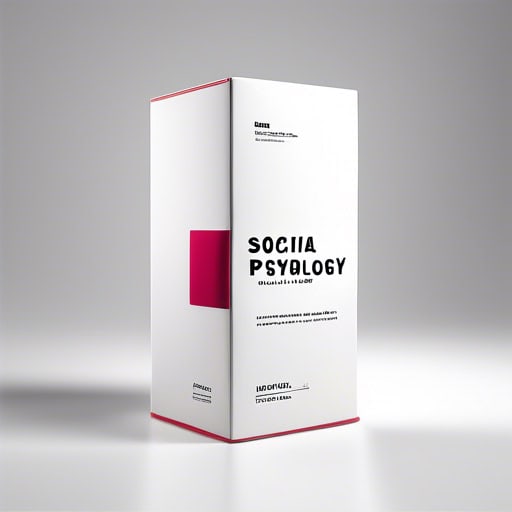
- She felt pressured to conform to social norms and dress a certain way for the job interview.
- Breaking social norms can sometimes lead to negative reactions from others.
- In some cultures, social norms dictate that it is polite to remove your shoes before entering someone's home.

- The company was sued for discrimination against employees with disabilities.
- Discrimination based on race or gender is illegal and unethical.
- The study found that discrimination against the LGBTQ+ community is still prevalent in many workplaces.

- Stereotypes can be harmful as they often perpetuate negative assumptions about individuals based on their race, gender, or other characteristics.
- It is important to challenge stereotypes and recognize that they do not accurately represent the diversity and complexity of individuals within a group.
- By breaking down stereotypes and embracing diversity, we can create a more inclusive and understanding society.

- Her positive attitude towards the project motivated the team to work hard and achieve success.
- The company's strict policy on workplace attitudes helped create a positive and productive environment.
- His negative attitude towards change hindered the team's ability to adapt and innovate.

- The experiment demonstrated how individuals exhibit obedience to authority figures even when it goes against their moral beliefs.
- Cult leaders often use manipulation tactics to gain obedience from their followers.
- In military training, obedience to commands is essential for maintaining order and achieving objectives.

- The pressure to conform to societal norms can sometimes be overwhelming.
- Many people struggle with the balance between individuality and conformity.
- In certain cultures, conformity is highly valued and deviation from the norm is seen as unacceptable.

- She experienced prejudice when her classmates made assumptions about her based on her race.
- The hiring manager's prejudice against older candidates was evident during the interview process.
- It is important to challenge prejudice and promote understanding and acceptance of all individuals.
Industrial-Organizational Psychology

- Finding a healthy work-life balance can lead to increased job satisfaction and decreased stress levels.
- Many companies are now implementing policies to support employees in achieving a better work-life balance.
- It is important to prioritize self-care and relaxation to maintain a positive work-life balance.

- I have high job satisfaction because I feel valued by my colleagues and have opportunities for advancement.
- Despite the low pay, the positive work environment and supportive team contribute to my overall job satisfaction.
- Job satisfaction plays a crucial role in retaining top talent and increasing productivity within a company.

- Leadership development programs have been shown to significantly improve employee morale and productivity within organizations.
- Many companies invest in leadership development initiatives to cultivate a pipeline of future leaders.
- Effective leadership development can lead to higher employee engagement and retention rates.

- The company implemented a new employee motivation program to boost productivity and morale among staff members.
- Regular team-building activities are a great way to increase employee motivation and foster a positive work environment.
- Financial incentives can be a powerful tool for increasing employee motivation and encouraging high performance.

- In order to track progress and provide feedback, employees undergo a performance appraisal at the end of each quarter.
- The performance appraisal highlighted areas where the employee excelled and areas that needed improvement.
- Managers use the results of the performance appraisal to make decisions about promotions, raises, and training opportunities.

- Studying organizational behavior can help managers better understand how to motivate their employees and create a positive work environment.
- Analyzing the impact of leadership styles on organizational behavior can provide valuable insights into improving team dynamics.
- Effective communication is a key component of successful organizational behavior and can lead to increased employee satisfaction and productivity.

- Job analysis is an essential part of the recruitment process to ensure that the right candidates are selected for a job role.
- During job analysis, the duties and requirements of a position are carefully examined to create an accurate job description.
- Conducting a thorough job analysis can help organizations improve employee performance and productivity by aligning job roles with organizational goals.
Forensic Psychology

- Forensic psychology plays a crucial role in assessing the mental state of defendants in court cases.
- Many forensic psychologists work with law enforcement to create profiles of suspects based on psychological analysis.
- Research in forensic psychology helps to improve our understanding of criminal behavior and how to prevent it.

- He was charged with multiple counts of criminal behavior, including theft and assault.
- The psychologist studied the relationship between childhood trauma and future criminal behavior.
- The community implemented programs to prevent youth from engaging in criminal behavior.

- The forensic psychologist conducted a thorough psychological assessment of the suspect to determine their mental state at the time of the crime.
- The court ordered a psychological assessment of the defendant to assess their competency to stand trial.
- A comprehensive psychological assessment was conducted on the witness to evaluate the credibility of their testimony.

- The legal system ensures that individuals are held accountable for their actions and provides a framework for resolving disputes.
- In most countries, the legal system is based on a combination of statutory law and case law.
- The legal system plays a crucial role in upholding justice and protecting the rights of citizens.

- The expert witness in forensic psychology testified about the defendant's mental state during the trial.
- The defense team relied heavily on the expert witness's testimony to support their case.
- The judge allowed the expert witness to present findings from their research in court.

- The court ordered a mental health evaluation for the defendant to determine their competency to stand trial.
- After a traumatic incident, it is common for individuals to undergo a mental health evaluation to assess their emotional well-being.
- Forensic psychologists often use specialized tools and techniques during a mental health evaluation to accurately assess an individual's mental state.

- Criminal profiling is a valuable tool used by law enforcement to help narrow down suspects in criminal investigations.
- The accuracy of criminal profiling can greatly aid in solving cases and apprehending dangerous criminals.
- Many experts believe that criminal profiling can provide valuable insights into the motives and characteristics of criminals.
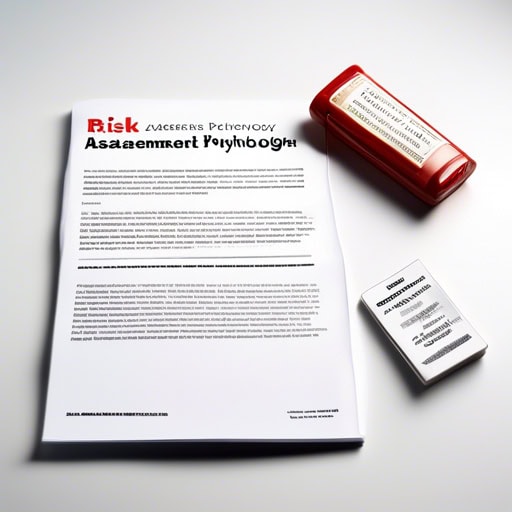
- The forensic psychologist conducted a thorough risk assessment of the suspect to determine the likelihood of reoffending.
- Risk assessment tools are often used in forensic psychology to evaluate the dangerousness of individuals in the criminal justice system.
- A comprehensive risk assessment is essential in making informed decisions about an individual's potential for harm to themselves or others.
Quick Facts
- Psychology is the scientific study of the mind and behavior.
- Sigmund Freud, often referred to as the father of psychoanalysis, developed theories about the unconscious mind and the role of childhood experiences in shaping personality.
- The Stanford Prison Experiment conducted by psychologist Philip Zimbardo demonstrated the powerful impact of situational factors on human behavior.
- Psychologists use a variety of research methods including experiments, surveys, and case studies to study human behavior and mental processes.
- The field of psychology includes various subfields such as clinical psychology, developmental psychology, and cognitive psychology, each focusing on different aspects of human behavior and mental processes.
